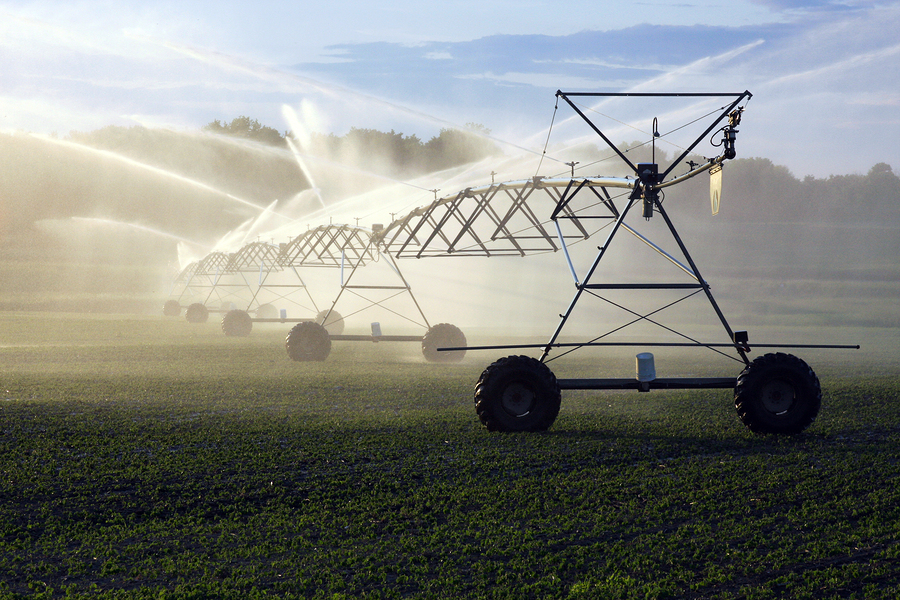Central Valley’s Crops Raised With Oil Field Water
(Editor’s Note: I hate that I didn’t know this but am glad that I can let you in on this, I suspect, unknown truth. Wish it wasn’t true.)
In California’s farm belt, Chevron oil recycles 21 million gallons of water each day and sells it to farmers who in turn use it on about 45,000 acres of crops (that’s about 10% of Kern County’s farmland). That’s treated oil field wastewater, on irrigated crops. Let that sink in.
The two decade old program is praised by state and local officials as a national model for dealing with water shortages and other areas are interested in learning and using the system. And as California’s draught has continued (four years and counting), every drop that can be saved is paramount. But, as you can imagine, the desire to use recycled waste water has raised concerns over the safety measures in place to prevent serious contamination from the toxic chemicals used in oil production. Most recently, the government only required limited testing of the recycled irrigation water, and only checked for naturally occurring toxins like salts and arsenic. To make matters worse, they used old monitoring standards which didn’t screen for the wide range of chemicals used in modern oil production.
So, last month, the Central Valley water authority, who regulate the water recycling program, notified oil producers of the new, broader testing requirements. Companies are now to begin checking for chemicals covered under California’s new fracking disclosure regulations; this law (approved last year) requires oil companies to inform the state about the chemicals used in the oil-extraction processes. Oil producers have until June 15 to report their results.
From the LA Times article:
“One environmental group has tested the irrigation water for oil field chemicals. Over the last two years, Scott Smith, chief scientist for the advocacy group Water Defense, collected samples of the treated irrigation water that the Cawelo Water District buys from Chevron. Laboratory analysis of those samples found compounds that are toxic to humans, including acetone and methylene chloride — powerful industrial solvents — along with oil.
David Ansolabehere, general manager of the Cawelo Water District, reviewed Smith’s results. He said the sampling methods gathered too many solids and not enough liquid for testing. Smith uses a sampling method that gathers water and particles over a longer period of time, from deeper levels, than traditional water testing techniques. That method, Ansolabehere said, casts doubt on the test results.”
In Kern County, Chevron’s leftover water is mixed with walnut shells, a process the company says extracts excess oil. The water then flows to a series of treatment ponds where the treated water is launched into an eight-mile canal to the Cawelo Water District. There it is sometimes diluted even further with fresh water. The water, which oil companies see as a problem, is a bargain for the farmers; the co-op pays Chevron about $30 an acre-foot for the wastewater(less than they would pay on the open market).
Chief deputy director of the State Water Resources Control Board, Jonathan Bishop, says that the water used for irrigation is safe- as long as the oil companies and the water district follow the rules of the permit. But Scott Smith disagrees with him. He’s spent two years studying the oil wastewater used in Kern County and says that the samples he’s collected contained acetone and methylene chloride(which is classified as a potential carcinogen)- used to degrease equipment or soften thick crude oil- and at concentrations higher than he’s seen at oil spill disaster sites.
For instance, one sample of the recycled Cawelo irrigation water, “registered methylene chloride as high as 56 parts per billion”, reports the Times article. This is nearly four times the amount that registered at the 2013 ExxonMobil tar sands pipeline spill in Mayflower, Ark. With numbers that high, that spill was declared a federal disaster, people were evacuated, and the company was fined $2.7-million.
But Chevron says it does not use acetone or methylene chloride in its oil extraction process and they won’t disclose the fluids they use for drilling or well maintenance. And yet, irrigation water expert with UC Davis, Blake Sanden, says that everyone can smell the petrochemicals in the irrigation water, in Cawelo district.
More from the article:
“No one knows whether nuts, citrus or other crops grown with the recycled oil field water have been contaminated. Farmers may test crops for pests or disease, but they don’t check for water-borne chemicals. Instead, they rely on oversight by state and local water authorities. But experts say that testing of both the water and the produce should be expanded.”
While it’s unlikely that those petrochemicals show up in an almond, or the flesh of an orange, it’s possible. The issue is that this stuff hasn’t been studied enough. “Carl K. Winter at UC Davis, who studies the detection of pesticides and naturally occurring toxins in foods, said some plants can readily absorb toxins without transferring them to the leaves or the flesh of their fruit. Still, he said, ‘it’s difficult to say anything for sure because we don’t know what chemicals are in the water, ‘” reports the Times.
Scary stuff.
Source: LA Times












